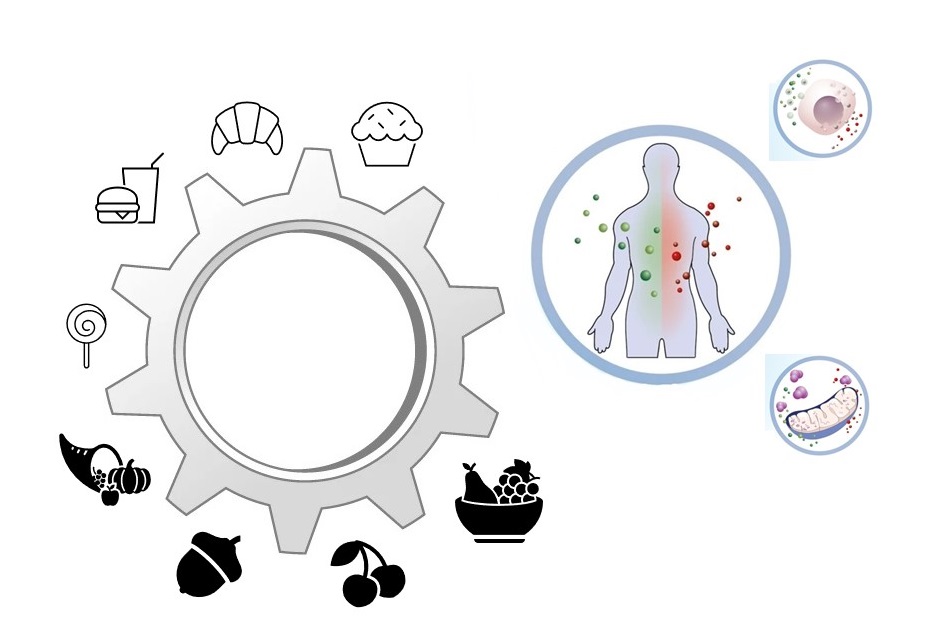By Bruno Bizzozero-Peroni, Javier Brazo-Sayavera, Vicente Martínez-Vizcaíno, Sergio Núñez de Arenas-Arroyo, Maribel Lucerón-Lucas-Torres, Valentina Díaz-Goñi, Isabel Antonia Martínez-Ortega, Arthur Eumann Mesas
Health-related physical fitness is a crucial indicator of health. Physical fitness refers to the functional capacity of the cardiovascular and respiratory systems to perform daily tasks and physical activities in a highly functional state. Consistent evidence has demonstrated that both improvements and high physical fitness are associated with preserving favorable health over the entire adult lifespan (1). In this regard, one of the most important points is that adults of all ages have the capacity to improve their physical fitness levels, mainly because these are closely related to modifiable lifestyle behaviors such as physical activity and dietary habits.

Nutrition is a powerful and safe strategy to extend the lifetime in which health status and functional capacity are maintained (2). A sustained change at any adult age from a typical Westernized dietary pattern (i.e., high consumption of meat and processed products, saturated fat, soda, sodium, sugar and trans-fat, and deficient consumption of plant-based foods) to the Mediterranean diet (i.e., high consumption of olive oil, fruits, legumes, nuts, seeds, vegetables and whole-grain cereals, moderate consumption of fish, low-fat dairy products, red wine and white meat, and occasional consumption of red meat) as an optimal food matrix is associated with increased life expectancy (3). In fact, greater adherence to the Mediterranean diet has been associated with several beneficial health outcomes, such as reduced overall mortality and reduced risk of some cancers, cardiovascular and neurogenerative diseases and diabetes (4). Beyond this, a systematic evaluation of global epidemiological evidence showed that throughout recent years, a nutritional transition characterized by high adherence to the Western dietary pattern has been observed even in the countries of the Mediterranean region (5). These dietary risks have become a growing public health problem in adulthood, as they are a major contributory factor to obesity, disability and mortality worldwide (5).
Meanwhile, low physical fitness levels have been increasing for several years, being a strong predictor of deteriorating cardiometabolic health with clear implications for cardiovascular and all-cause mortality (6). In this regard, some evidence has suggested that the Mediterranean diet could have a positive impact on physical fitness (7), mainly because the synergistic effect of its components leads to favorable nutrient intake (e.g., high antioxidant compounds) that, in turn, favors a better scenario for physical fitness development. This shows the relevance of diet to improve and preserve the performance of physical fitness, which is an important marker of health status in the adult population.

Although the association between Mediterranean diet adherence and physical fitness has shown promising results in a meta-analysis conducted in children and youths (7), a systematic review with a meta-analytical approach on whether and to what extent adherence to the Mediterranean diet and its individual components are associated with physical fitness levels in adulthood remains unknown. Therefore, we designed a protocol methodology for a systematic review and meta-analysis that will provide updated evidence on the associations between adherence to the Mediterranean diet and physical fitness levels throughout adulthood. We are confident that the results of our review will be available soon, and we hope that they will be useful for researchers and health professionals responsible for adult lifestyle surveillance and health promotion.
Read all in https://journals.plos.org/plosone/article?id=10.1371/journal.pone.0271254
On behalf of all authors,
Bruno Bizzozero-Peroni
I’m a research assistant at the Health and Social Research Center (University of Castilla-La Mancha, Spain), professor at the Higher Institute of Physical Education (University of the Republic, Uruguay), and a research associate at the National System of Researchers (National Agency for Research and Innovation, Uruguay). My academic background is as follows: Degree in Physical Education (2013–2016, University of the Republic, Uruguay), Master’s in Physical Activity and Health (2017–2018, University of Cadiz, Spain), and PhD student at the Health and Social Research Center (2021–present, University of Castilla-La Mancha –grant co-financed by the European Social Fund–, Spain).
References
- Lavie CJ, Kachur S, Sui X. Impact of fitness and changes in fitness on lipids and survival. Prog Cardiovasc Dis. 2019;62(5):431–5.
- Longo VD, Anderson RM. Nutrition, longevity and disease: From molecular mechanisms to interventions. Cell. 2022;185(9):1455–70.
- Fadnes LT, Økland JM, Haaland ØA, Johansson KA. Estimating impact of food choices on life expectancy: A modeling study. PLOS Med. 2022;19(2):e1003889.
- Dinu M, Pagliai G, Casini A, Sofi F. Mediterranean diet and multiple health outcomes: an umbrella review of meta-analyses of observational studies and randomised trials. Eur J Clin Nutr. 2018;72(1):30–43.
- Afshin A, Sur PJ, Fay KA, Cornaby L, Ferrara G, Salama JS, et al. Health effects of dietary risks in 195 countries, 1990–2017: a systematic analysis for the Global Burden of Disease Study 2017. Lancet. 2019;393(10184):1958–72.
- Hemmingsson E, Väisänen D, Andersson G, Wallin P, Ekblom-Bak E. Combinations of BMI and cardiorespiratory fitness categories: trends between 1995 and 2020 and associations with CVD incidence and mortality and all-cause mortality in 471 216 adults. Eur J Prev Cardiol. 2021;
- García-Hermoso A, Ezzatvar Y, López-Gil JF, Ramírez-Vélez R, Olloquequi J, Izquierdo M. Is adherence to the Mediterranean diet associated with healthy habits and physical fitness? A systematic review and meta-analysis including 565 421 youths. Br J Nutr. 2020;1–12.

